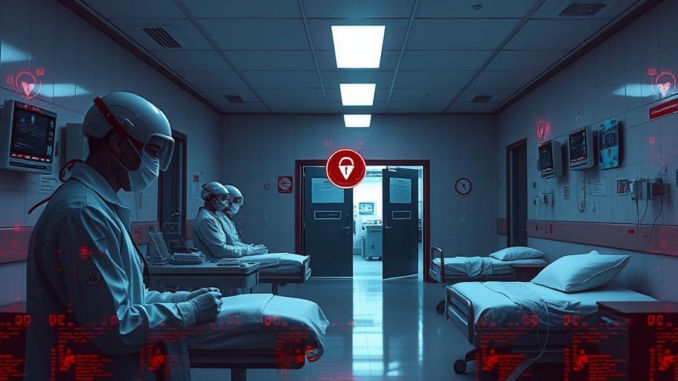
Summary
The Qilin ransomware gang attacks a Japanese cancer hospital, exposing sensitive data of 300,000 patients. This incident highlights the increasing threat of ransomware to critical infrastructure, particularly healthcare. Qilin’s continued activity demonstrates its growing sophistication and the need for robust cybersecurity measures.
Explore the data solution with built-in protection against ransomware TrueNAS.
** Main Story**
So, Qilin, right? Those guys are making a real name for themselves, and not in a good way. Word is, they’ve claimed responsibility for hitting that cancer hospital in Japan. It’s the Utsunomiya Central Clinic (UCC), and apparently, things haven’t been the same since February 10th, 2025.
UCC confirmed they were hit, and the attack messed with their systems big time. Can you imagine the disruption to patient care? I heard medical services were seriously limited. And Qilin’s bragging about grabbing 135GB of data, impacting, get this, around 300,000 patients. Names, birthdays, addresses, the whole shebang, plus info on doctors, nurses, the whole staff, yikes.
The Qilin Problem
This whole thing just highlights how much of a pain Qilin has become. They used to be called “Agenda,” back in 2022. Now, they’ve gotten way more sophisticated. We’re talking Linux and Rust-based ransomware, custom credential stealers – the works. Hospitals, media companies, government agencies…they aren’t picky. And this UCC attack? It just drives home how little they care about patient well-being and what could happen when healthcare is disrupted.
Remember that hospital in LA a few years back? Similar situation, ransomware locked up their systems. They had to divert ambulances. It’s a terrifying thought, isn’t it?
Inside the UCC Nightmare
The attack on UCC forced them to pull the plug on their internet connection. I mean, talk about a major headache. Consultations and checkups were a mess. Thankfully, UCC’s been pretty open about the whole thing. They’ve listed what was compromised and are warning people about phishing scams. Good on them for being transparent, that said, the damage has been done.
Quick action probably stopped things from getting even worse, but still, that data’s out there. It’s scary.
Ransomware vs. Healthcare: A Global Crisis
Let’s be clear, UCC isn’t alone. Ransomware attacks on healthcare are a global crisis. It’s not just about the money; patient care gets messed up, critical procedures are delayed, and patient safety can be compromised. And recovering from an attack? That’s expensive. It sucks up resources that should be going to patients. What can we even do about it?
That’s why we need a proactive, comprehensive cybersecurity approach to protect patient data and keep things running. I mean, it’s essential. Honestly, it’s a no-brainer.
Time to Fight Back
The rise of groups like Qilin means we have to get serious about cybersecurity in healthcare. Hospitals and clinics need to invest in security. Multi-factor authentication, regular backups, employee training, the works. And we need to collaborate: healthcare organizations, government agencies, cybersecurity experts…sharing information and developing strategies. You know, treat it like an actual threat.
After all, protecting patient data and ensuring healthcare services continue requires a coordinated effort and a commitment to cybersecurity at all levels, it’s that simple. To summarise, we need better investment in training for staff, and modern security systems that can detect and mitigate threats before they exfiltrate patient data. What are your thoughts on this, what do you think needs to be done?


“Treat it like an actual threat,” huh? Maybe hospitals should start asking ransomware gangs for *their* cybersecurity recommendations. After all, they’re clearly the experts, and who better to advise on defense than the ones doing the attacking?
That’s a darkly humorous take! You’re right, in a twisted way, they *are* experts in exploiting vulnerabilities. Perhaps analyzing their methods to proactively patch systems is a less direct (and less ethically questionable) approach to leveraging their expertise. What do you think?
Editor: StorageTech.News
Thank you to our Sponsor Esdebe
The UCC attack highlights the urgent need for robust data protection strategies, especially given Qilin’s use of custom credential stealers. How effective are current data loss prevention (DLP) solutions in detecting and preventing the exfiltration of such stolen credentials, and what advancements are needed?
That’s a really important question! The custom credential stealers that groups like Qilin use definitely complicate things for standard DLP solutions. I think advancements in behavioral analytics and machine learning could help DLP better detect anomalous data access patterns and potential exfiltration attempts. What are your thoughts on using AI for proactive threat hunting in healthcare?
Editor: StorageTech.News
Thank you to our Sponsor Esdebe